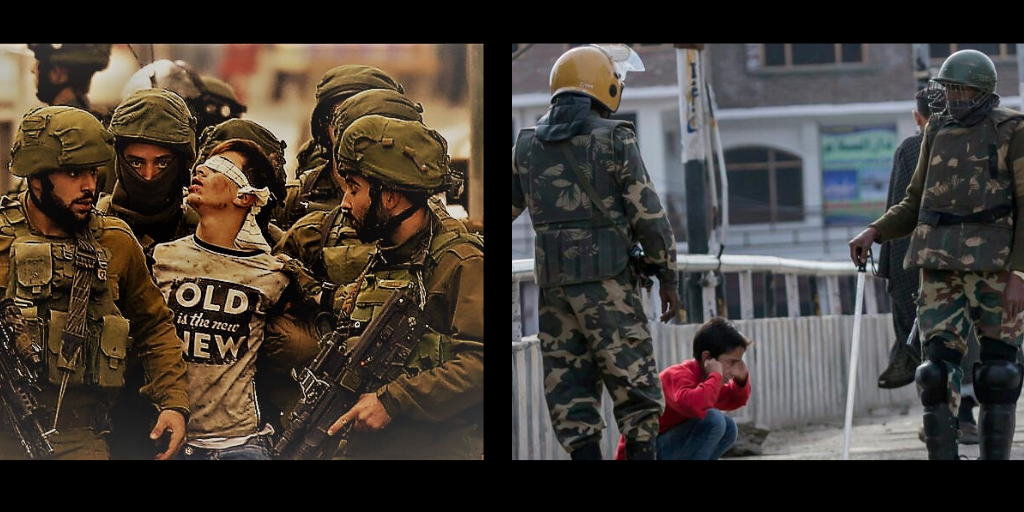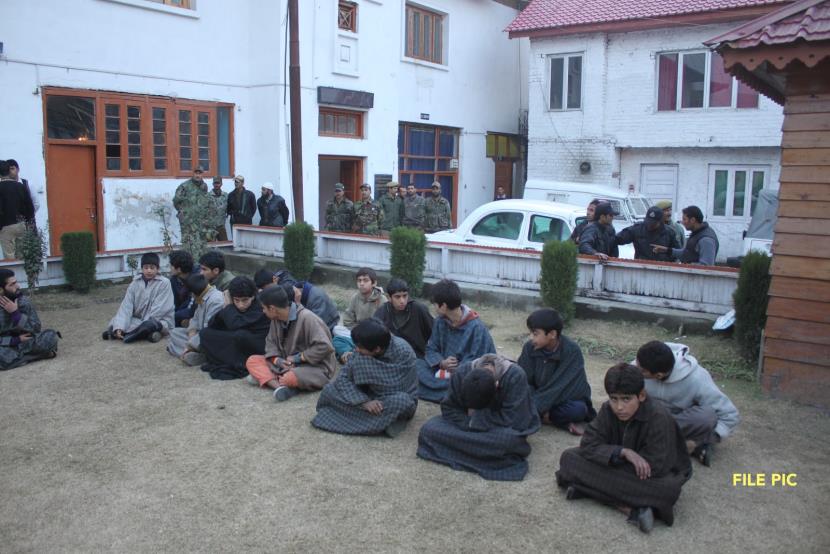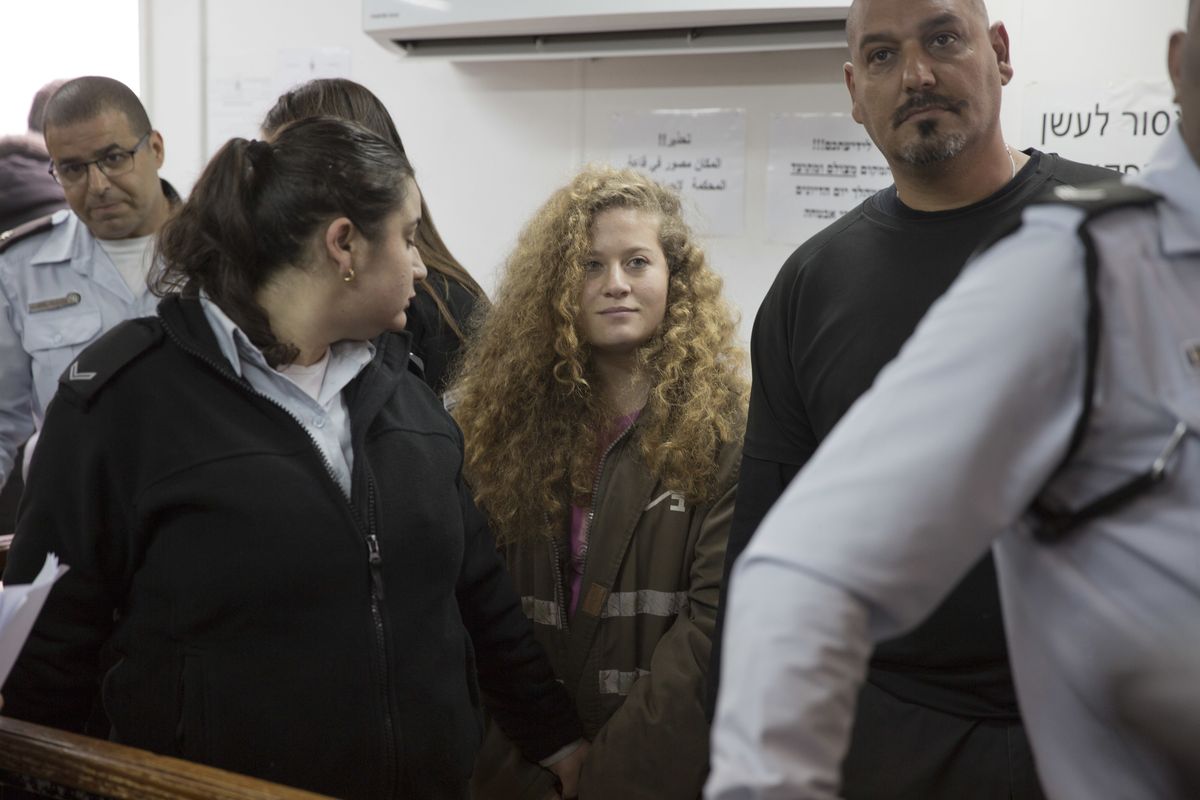
In the course of war, occupation and militarised state repression, the unimaginable becomes routine. It calls for further attention when the methods and techniques of repression bear similarities across geographies. In the nearly four months of blockade in the Kashmir valley, imposed after central government’s unilateral decision to revoke Article 370 of the Constitution, the methods of the Indian state and its security forces find too many parallels with Israel. While it has been pointed out how India’s move in Kashmir is aimed at turning the latter into another West Bank, including threats of forced demographic changes, I will here focus on one aspect of the gamut of repressive methods deployed by the Indian state, arguing that the paralllels between Kashmir and occupied Palestinian territories (oPt) lie not only in the symbolic, but in very real and material exchanges of arms as well as methods of repression, which in turn draw from a collaboration of ideologies. The Indian state in Kashmir does not only ‘look’ like Israel in oPt, its actions are supported and informed by Israel’s weapons and techniques ‘tested’ on Palestinians in the West Bank and Gaza.
Also read | Stories From Palestine: Handala and Madhubala
Even before this ongoing blockade, among the 8000-20000 people detained under the Public Security Act (a ‘lawless law’, according to Amnesty International) in the last two decades are children. From August 5 onwards, though, these detentions of minors have increased massively. Children as young as 11 years old have been detained by the security forces,many of them in late night raids. In response to a Public Interest Litigation on illegal juvenile detentions filed in the Supreme Court of India in September, the Juvenile Justice committee admitted to 144 children under the age of 18 being “picked up” by the police between August and September. While this is open admittance by the JJ committee on detention of minors, it is hugely under-represented figure. The police has carefully left no paper trail of detentions. They have detained family members coming to enquire about the minors. There have been reports of torture and abuse. Many of those detained are ordered to report at their local police stations, sometimes held there for hours. While accusations of being involved in stone pelting are a common excuse for these detentions, in the last four months, the actions of security forces have become so arbitrary that even this veneer of an excuse is not required anymore. These detentions have long term impacts on these minors, from isolation to Post Traumatic Stress Disorder.

In terrifying detail, illegal detention of minors in oPt follows the same patterns. In 2018, the detention of Ahed Tamimi and the image of Fawzi Al-Junaidi being blindfolded and surrounded by armed Israeli soldiers brought worldwide attention to Israel’s systematic detention of Palestinian children. The most common charge for detention brought against Palestinian minors, again, is stonepelting. From being picked up in late night raids until reaching interrogation centres, they are verbally and physically abused, many being handcuffed and blindfolded. In many cases, parents are not notified about their whereabouts, as has been seen in Kashmir as well. Many are held in detention centres in Israel, and their parents might not even get permissions to meet them. These interrogations include threats, verbal abuse, humiliation and deprivation of food, water and sleep. These minors are tried in military courts, and with next to zero chance of getting a fair trial, they often accept plea bargains.
Also read | Palestine: Freedom or a loaf of bread?
Both Israel and India are signatories to the United Nations Convention on the Rights of the Child. It outlines grave violations such as “killing and maiming, recruitment and use of children, sexual violence, abduction, attacks on schools and hospitals, and denial of humanitarian access”, which are being breached with impunity by both India and Israel. And this similarity is not an accident.
Israel has a long history of being a strong ally of authoritarian regimes. When apartheid South Africa was placed under sanctions globally, Israel was supplying it with arms and military trainings. The white supremacist, antisemitic Afrikaner regime in South Africa saw their reflection in Israel. Israel supplied arms to Serbia during the Bosnian genocide, and a petition demanding details of these dealings to be made public was rejected by the Supreme Court of Israel. During the decade long civil war, it supplied arms and strategic military advice to Sri Lanka, including training to the Special Task Force, a brutal commando unit in the Sri Lanka police. This bloody track record alone should alarm us, as we see India and Israel coming closer than ever in the last five years.

At the heart of these illegal detentions and abuse of children, both in oPt and Kashmir, is suspicion and imposition of collective punishment over an entire people. Just as Israel sees oPt as land it wants to annex and demographically alter- the latter underway through illegal Israeli settlements — the Sangh parivar has long campaigned against the special status of the only Muslim majority state of jammu and Kashmir. With violent disregard for India’s constitution and legality, the revocation of Kashmir’s special status is a moment of (Pyrrhic) victory for the ruling regime. It has been preceded by an entrenched militarisation and laws that provide impunity to the armed forces.
India buys almost half of Israel’s weapons exports, a large section of which is drones, and jointly produces small arms which include the Tavor rifles — the very symbol of militarism in Kashmir. Indian army has joint trainings and exchange of delegations with Israel, including in Kashmir and trainees of the Indian Police Services academy are sent for training to Israel. From counter-terrorism to cybersecurity, India’s Ministry of Home Affairs has joint working committees with Israel. Most recently, an Israeli spyware was found snooping on human rights defenders in India, a spyware which is only sold to law enforcement agencies.
Also read | From Palestine To India: We Have A Common Future Of Solidarity
These exchanges and collaborations, however, are built upon an ideological proximity. Zionism and Hindutva are mirror images in their visions and actions, much like the Afrikaner regime in South Africa and Israel in the mid-20th century. The proposed Citizenship Amendment Bill seeks to give “right of return” to Hindus in India’s neighbouring countries, just as Israel offers it to Jewish people world over. And this co-exists with injustice, violence and systematic discrimination against minorities in each country.
The example of South Africa is relevant for more than one reason. The apartheid regime, even with Israel’s backing, was eventually defeated and apartheid collapsed under the pressure of the national struggle and global isolation of the regime. In a world battered with right wing impunity and marginalisation of people’s struggles, it is even more important to remember this victory which was made possible by global solidarity. In a similar vein, if the regimes in India and Israel are exchanging arms and techniques of repression, it is urgent for the conscientious Indians and Palestinians to unite our struggles, demanding freedom, justice and equality for all.




